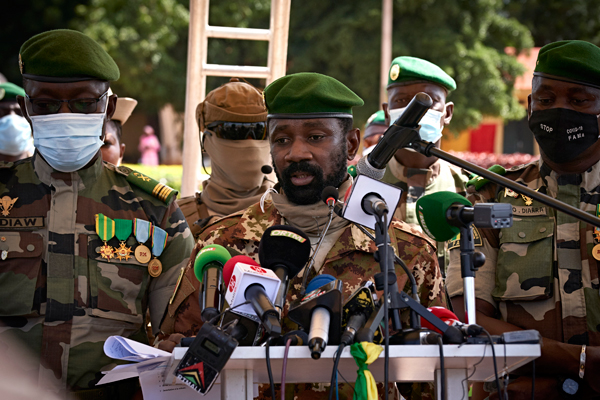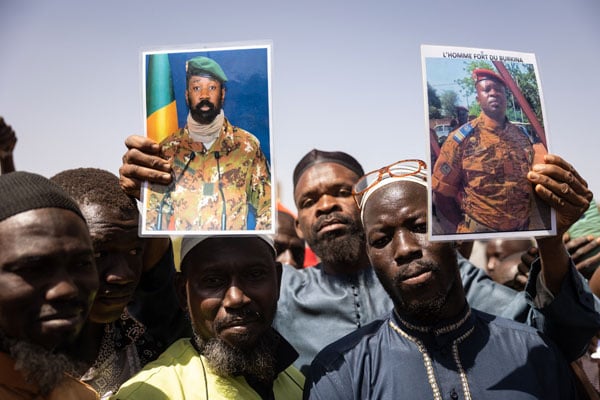Mali's new draft constitution bolsters president's power

Colonel Assimi Goita (C), President of CNSP (National Committee for the Salvation of People) addresses the press during the ceremony of the 60th anniversary of Mali's independence in Bamako on September 22, 2020. PHOTO/ AFP
What you need to know:
- Revising the constitution is a key part of plans by the military headed by Colonel Assimi Goita to stay in power until 2024 and then hand over to civilian rule.
The draft of a new constitution handed to Mali's military ruler bolsters the powers of the future president and rules out extensive autonomy for the country's north.
Revising the constitution is a key part of plans by the military headed by Colonel Assimi Goita to stay in power until 2024 and then hand over to civilian rule.
The draft rules out the idea of a federation, according to Fousseyni Samake, head of the committee drafting the document, who spoke on state radio and television on Tuesday and Wednesday.
Northern Mali a decade ago was battered after ethnic Tuaregs launched a campaign for independence or a special status.
Jihadists joined the rebellion, transforming it into the springboard for an Islamist insurgency that has since swept into neighbouring Niger and Burkina Faso.
The text of the "preliminary draft constitution," which is not yet published, is supposed to be submitted to a referendum in March 2023.
Malian authorities, dominated by the military which seized power in August 2020, cite a revised constitution as crucial for the "renewal" of the state.
They announced the commission in June after extending military rule until 2024.
The military has pledged under pressure to hold elections in February 2024 and to hand over power in March of the same year.
The current constitution, dating from 1992, stipulates that "the government determines and enacts out the policy of the nation."
Under the new draft, which comprises 195 articles instead of 122, "it's the president of the republic who determines the policy of the nation, and it's the government which enacts the policy," Fousseyni Samake said in an interview broadcast late Tuesday and Wednesday.
In addition, "Parliament or the (National) Assembly will no longer be able to overturn the government, and conversely, the president will no longer be able to dissolve the National Assembly," he said.
The draft sets up a second chamber of parliament, which corresponds to a senate elsewhere, besides the National Assembly.
Mali's political leaders have agreed for some time on the need to overhaul the constitution, seen by many as a destabilising factor in a country that has suffered three coups since 1991 and five since independence in 1960.
Political turmoil has also amplified the grave security crisis under way since 2012.
Tuareg-dominated armed groups signed with the central government in 2015 the Algiers peace accord granting more autonomy for the north.
But the path towards implementing the deal was laborious, becoming an argument for reviving long-aborted attempts to revamp the constitution.
One part of the political class is hostile to greater autonomy in the north.
"There is the clear affirmation of the unitary character of the Malian state, which means that there is no question of our having a federal state," Samake said.




